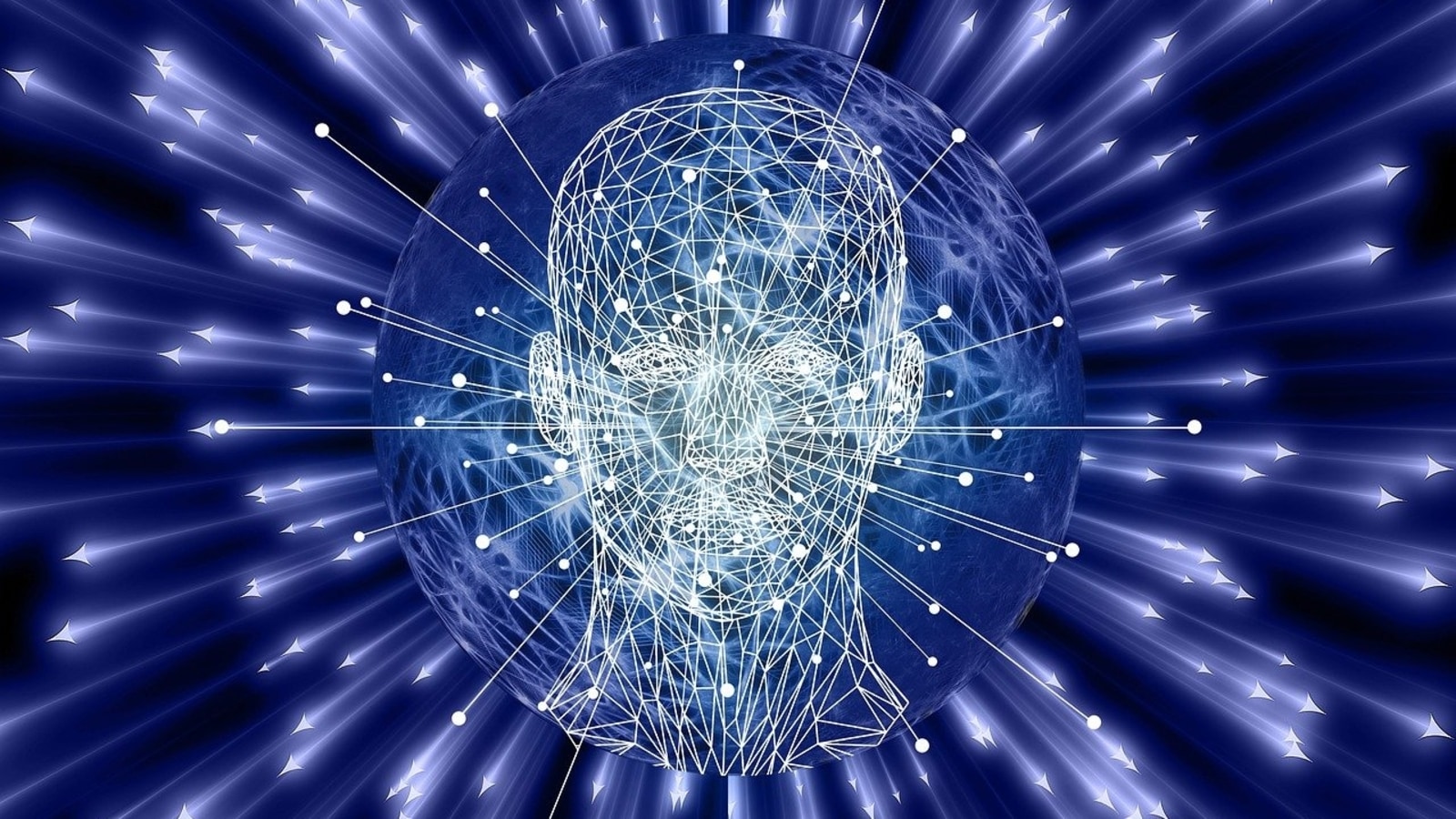Artificial Intelligence To Spark Apocalypse Now? Only In Our Fevered Dreams
Doomsday fear-mongering over Artificial Intelligence reached a high pitch this year. Let’s try to stay focused on more immediate problems in 2024.







 View all Images
View all Images“I mean, sometimes you get these like, late civilization vibes,” said Elon Musk, Tesla's chief executive officer, at a recent event for the Cybertruck, his piece of absurdist automotive art. “The apocalypse could come along at any moment. And here at Tesla, we have the finest in apocalypse technology.” There's a lot of this end-of-days talk around right now. Even before the Covid-19 pandemic, there were stories about Silicon Valley billionaires prepping for Armageddon by purchasing bunkers in New Zealand. But this year I've been hearing and reading more and more of it, especially linked to artificial intelligence.
I find it more fascinating than troubling, because I see eschatological obsessions as social phenomena not rational analyses of where we're headed. Still, such thinking can be dangerous when exploited by political opportunists. At the very least, it's a wasteful distraction from addressable problems right in front of us. The real question we should be concerned with is why cataclysmic prophets sometimes attract big followings. Understanding this can help us avoid the paths they may lead us down.
The big Doomsday theme this year has been the existential risk from rapidly evolving AI technology. In 2023, everyone seemed to be experimenting with ChatGPT and other sophisticated large language models, feeding anxiety not only about how these tools might destroy jobs, but also about how AI was inching toward sentience and might some day kill us all.
Many of the venture capitalists and engineers behind this technology are adherents of the effective altruism movement and overlapping philosophies concerned about the future of humanity. They're not all apocalyptically inclined, but many are: One famous effective altruist, the FTX founder Sam Bankman-Fried, had been hatching a plan to buy the Micronesian island of Nauru, where he would build a bunker large enough to ensure the survival of most of the group. That was before the collapse of the cryptocurrency trading company and his fraud conviction.
The debate over AI safety was behind the chaotic removal and reinstatement of Sam Altman as chief executive officer of OpenAI, the company behind ChatGPT, in November. Dig deeper and you'll enter an amazing rabbit hole of schisms and rivalries, which in OpenAI's case boils down to differences between two groups, the “accelerationists” and “longtermists,” according to Emile P. Torres, a former EA member and chronicler of the factions.
The accelerationists don't buy the existential threat. Marc Andreesen, co-founder of VC firm Andreesen Horowitz and self-professed accelerationist, published a long techno-optimist manifesto in October saying he didn't believe in utopia or apocalypse. Instead, accelerationists see technology as the savior of humanity and Andreesen expects our descendants to live among the stars.
The longtermists are much more worried that AI could turn on us. As math-driven effective altruists whose main concern is to positively affect as many lives as possible, they hate the idea of humanity's destruction because of the immense value that would be lost if trillions of future potential lives go unlived. (One very odd element of their thinking, however, is that such future lives would be valuable even if they were only digital avatars produced by AI.)
And it's not just technologists infected with ideas of apocalypse; we've had a wealth of political rhetoric in recent years leaning into the language of Armageddon. Donald Trump's speeches are gaudy with images of dark, nefarious actors and the idea that he can save good people from carnage and lead them into a new Great America — after exacting a righteous vengeance. In a Veterans Day speech this year, he said: “We pledge to you that we will root out the communists, Marxists, Fascists and the radical left thugs that live like vermin within the confines of our country.”
Such visions have a quasi-theological quality, and they're not new. Indeed, they've been with us for hundreds, even thousands of years.
Historian Norman Cohn's seminal 1957 work on apocalyptic religious cults and revolutionaries, The Pursuit of the Millennium, traces the origins of such ideas to the biblical books of Daniel and Revelation and catalogues their explosion in Medieval Europe. In his pages you see bands of outlaws led by Messianic hermits evolve into social revolutionaries. It peaked with the Anabaptists of Munster, Germany, led by John of Leyden in the 1530s, who believed the church was evil and sought to create their own baptism, abolish private property, kill anyone who refused to convert — and wait to be saved in the Apocalypse.
Cohn covers an amazing array of groups, many that were truly far out(1). Of course, mad ideas come and go all the time. The question is why some move beyond the fringes and attract larger followings, and Cohn makes an excellent analysis of this.
Revolutionary movements among the poor occurred with increasing frequency from the end of the 11th century onwards — a period of upheaval that saw the of dismantling of feudal peasantry and early industrialization of cloth-making and copper. Cities expanded and attracted rural folk who became low-skilled urban workers subject to economic cycles and detached from their historic support of family and tenant communities. There was population growth and more long-distance commerce. There was disorientation and destitution among the poor.
All kinds of protests and revolts by peasants and artisans occurred, many with specific aims to improve people's lives. But there were also radical groups that wanted to overthrow the existing order, especially the established church. Slaughtering clergy was a fairly common practice. One extreme doctrine was the restoration of an Eden, an egalitarian state of nature. It was a nostalgia for a mythical past. You could call it a very early precursor to visions for Britain outside of Europe or America made Great Again.
I can't help seeing parallels with elements of our own times. The settled life of the post-war 20th century industrial age has given way through globalization and technological advances to the digital age of today. Many people are convinced that once-reliable employment and welfare — provided by the state or corporate benefits, for instance — has collapsed into precariousness. Many also struggle with the unfamiliarity of cultural change. There are lots of “ bad vibes”.
Cohn also describes a great information explosion that undermined the authority of the church, the biggest, most important institution of the Middle Ages across Europe. The bible and religious tracts were being translated into colloquial languages, giving ordinary people direct access to interpreting the truths that governed their lives. Wandering preachers and tradesmen helped to transmit this information, and eventually the invention of printing saw it explode.
Like many new technologies, this ushered in great progress while also propagating all manner of lunatic theories, hoaxes, scams and dark spiritual propaganda. The modern-day connection screams like a klaxon.
In The Revolt of the Public, first published in 2014 but updated and reissued four years later and freshly relevant today, former CIA analyst Martin Gurri describes how Facebook, Twitter and other platforms changed politics in ways that aided the rise of modern populists. Digital technology democratized information and helped protesters coalesce and even overthrow governments in Egypt, for example, but it also rapidly eroded the authority of the institutions of the industrial age. The internet and social media enabled everyone to fact check, criticize and challenge narratives of governments and mainstream media in real time. It also allowed strange new philosophies, dubious charismatics and extreme political or cultural movements to be seen, heard and amplified.
Beset by economic uncertainties and information overload, it's not hard to see why some turn to simplified stories about the world, its morality or mechanisms, which offer to explain their lot in life. Or why some might be vulnerable to magical promises of salvation through the vanquishing of other groups and imagined forces of evil. Or how some could be seduced by visions of impending doom.
These are dangerous fevers of the mind that careless or callous opportunists can whip up into self-aggrandizing cults or extremist left- or right-wing politics. Such thinking also leads us to waste time and resources on fanciful concerns. The biggest issue I have with effective altruism, or with fixating on the existential threat of a Skynet-like AI, is that these become excuses not to tackle the difficulties that are right in front of us: misinformation, bias and privacy concerns; expanding energy usage and CO2 production; hollowed-out communities lacking infrastructure and jobs.
In 2024, we should encourage each other to focus on these immediate and solvable problems. There's no time to waste succumbing to manias.
Apocalypse now? Only if we make it so.
(1) One group, Adepts of the Free Spirit, started appearing around the middle of the 13th century and continued to crop up in various forms for over a hundred years. They believed they embodied God, that indeed they were God, and thus were incapable of sin. That means they could do anything — and some of them did to an extreme extent, no matter how licentious, larcenous or murderous.
Catch all the Latest Tech News, Mobile News, Laptop News, Gaming news, Wearables News , How To News, also keep up with us on Whatsapp channel,Twitter, Facebook, Google News, and Instagram. For our latest videos, subscribe to our YouTube channel.






























